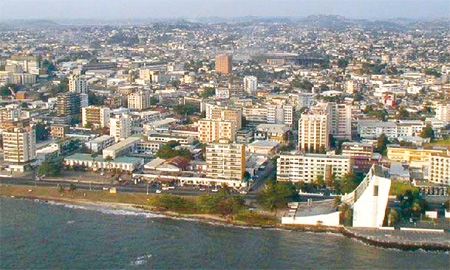Libreville is Gabon’s capital and largest city. Once an elegant capital, Libreville has long been the country’s hub for tourism, education and business. Today, it is home to more than 800,000 people, over half of the population of Gabon, and is growing at the rate of 3% a year. In addition, new projects such as the Nkok Special Economic Zone and a new port and airport are likely to attract an increasing number of international visitors to Libreville, as the city remains cleaner and far more secure than many others in central Africa.
Unfortunately, over the last decade Libreville has fallen somewhat into disrepair, with its crumbling official buildings, poor roads, unregulated public areas, and garbage-filled streets as well as insufficient public services for the local population. All of these factors have worsened the quality of life of Libreville’s residents.
The city’s mayor, Jean-François Ntoutoume Emane, a former prime minister, is intent on restoring Libreville to its past glories. Since he became mayor in 2008 he has initiated a series of public works projects to improve the city. With a tight budget, however, City Hall is calling for outside investment, as well as for skilled foreign workers to come to assist on infrastructure projects in Libreville in areas such as health and education. As an example, two public medical centers have just been built in Libreville and the mayor intends to establish two medical centers in each district in the city, each with a doctor and two nurses. Meanwhile, the city’s pre-school centers need permanent nurses to help the fight against infant mortality. Libreville’s projects will boost the economic development of Gabon as a whole.
Libreville means “Free Town”, named for the released slaves who arrived there in about 1800. One of City Hall’s plans is to restore the historical dimension of Libreville with monuments around the city to commemorate the people’s history.
The city used to be drowned under trees, plants, and flowers in its rich parks and gardens. As these have not been always maintained, the city is also focusing strongly on restoring the beauty of Libreville’s public spaces such as gardens, squares, and traffic circles. Libreville’s markets are unregulated and sprawling and are run to benefit a few private individuals rather than the public sector. A large new municipal market and several smaller markets are now being established which will clean up the public areas and revive local business.
Another challenge for Libreville to address in coming years is a shortage of social housing, caused by the rapid urbanization. In order to meet the growing demand, many real estate companies have large development projects underway, and the state has committed to building 5,000 new units of social housing every year.
Libreville will be on show to the rest of Africa and beyond in 2012, when it will host several matches of the Africa Cup of Nations soccer tournament, including the final. The mayor is confident that visitors will find themselves warmly welcomed into a safe city.
“Gabon is a very friendly country and for some of our ethnic groups, if a foreigner dies in our premises, it is a curse!” he explains. “When we are just little kids we are taught the sacral art of welcoming a foreigner and protecting him by all possible means. Even at the cost of one’s own life.”

0 COMMENTS